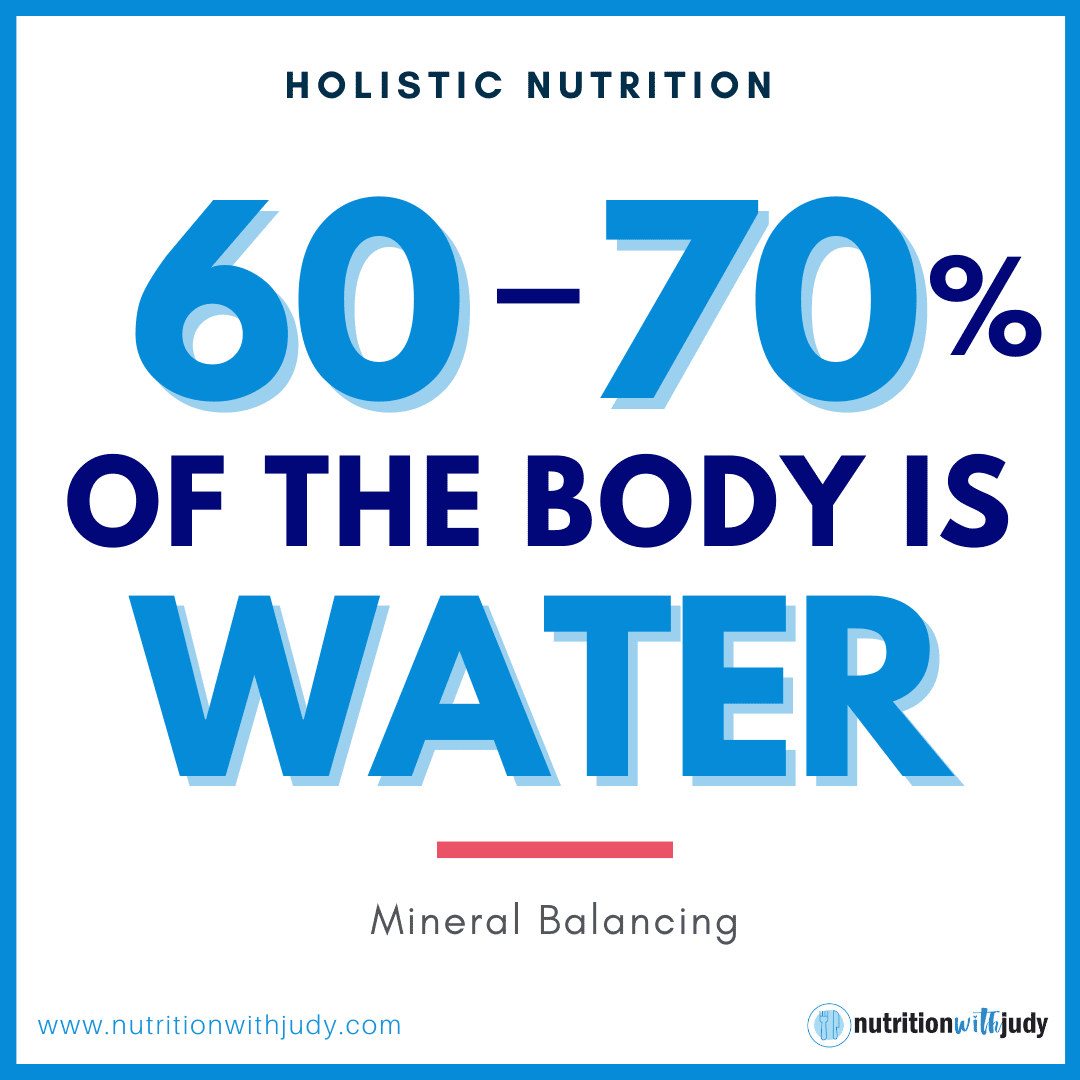

The Importance of Water


An average adult body holds about 12 to 15 gallons of water.
So where’s the water?
Most of the volume of cells and bodily fluid is water.
Generally speaking, most of our water is allocated as such:
- Plasma (blood) is 90% water
- Brain is 75% water
- Muscle 75% water
- Lungs are 70-80% water
- Skin is 64% water
- Fat is 20% water
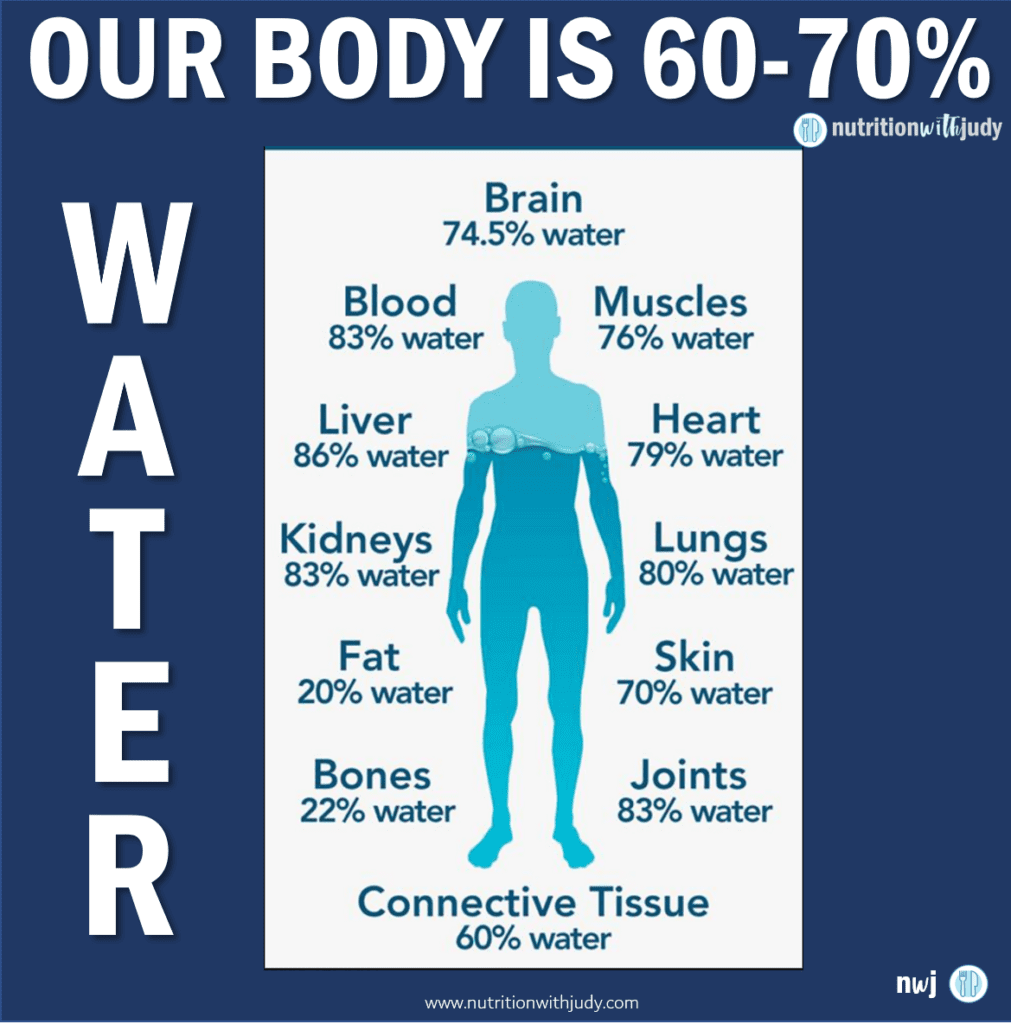

Now water has a lot of roles in the body.
In the context of weight and metabolism, water plays a significant role:
- Water helps our body to flush waste (detox).
- Water is needed by our brains to make hormones. We need healthy thyroid function for a healthy metabolism.
- Water also helps to transport nutrients into the cells.
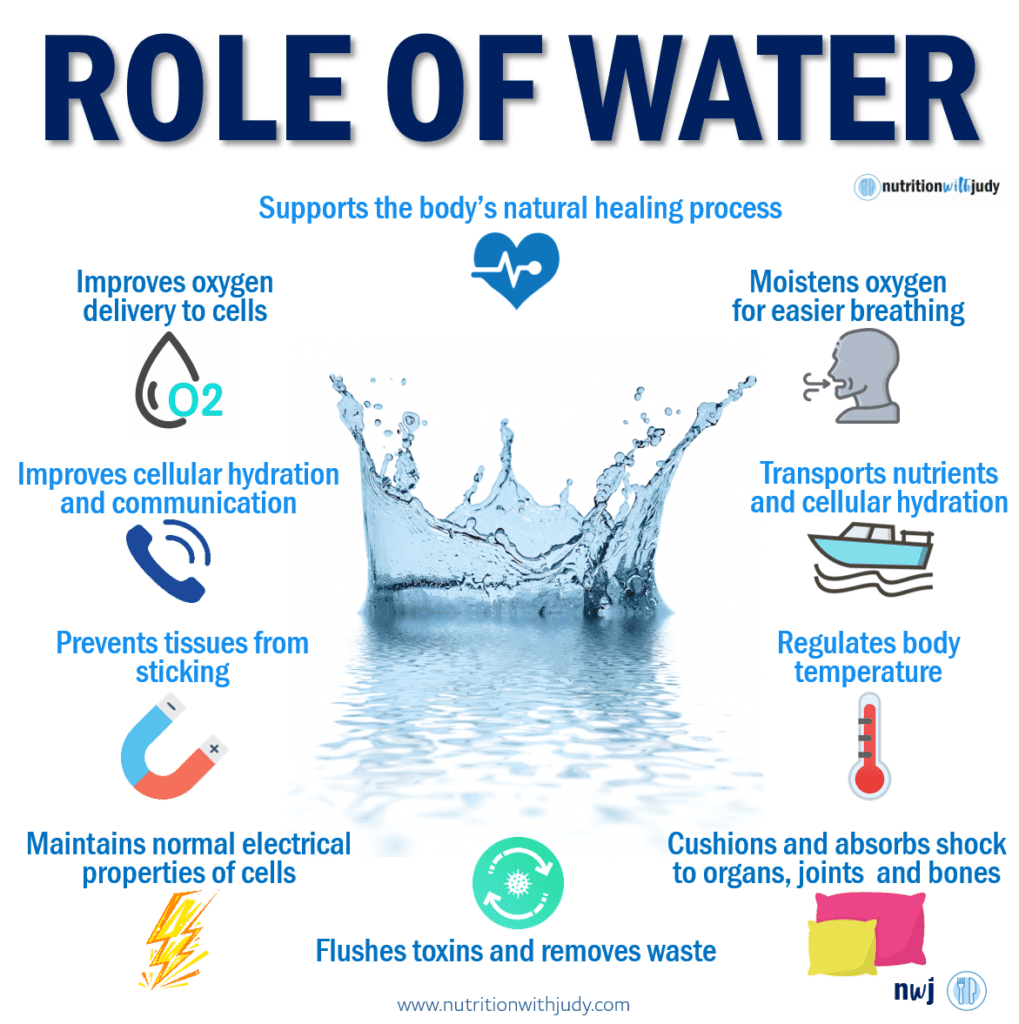

Guess what is water’s best friend in the body?
M I N E R A L S
Many of my clients don’t drink enough water. Sometimes I do too. It’s easy to drink less water during the winter months. This is when bone broth can be a great option.
On a meat-based diet, you still need to drink enough water, even if you don’t always feel thirsty. If you always feel thirsty, check bloodwork for diabetes, loss of blood, or check kidney/liver function.
The body can produce about 8% of its daily water needs through metabolic processes. The remaining 92% must be ingested through the foods you eat and the beverages you drink. Meats contain water but not as much as fruits and vegetables.
Even though the amount and distribution of water are regulated within the body, water cannot be stored, making daily consumption of water essential for a healthy body. The total volume of fluids ingested or secreted into the GI tract is about 9.3 liters (close to 10 quarts). Most of the water in these fluids is absorbed from the GI tract through osmosis.
Osmosis is the passage of water through a membrane from an area of higher water concentration to an area of lower water concentration.
- About 8.3 liters of water is absorbed in the small intestine
- About 0.9 liters is absorbed in the large intestine
- The rest is excreted in feces
Water depends on electrolytes for proper absorption. Electrolytes are minerals that become capable of conducting electricity when dissolved in water.
Electrolytes have four general functions:
- Controls the osmosis of water between fluid compartments
- Helps to maintain the pH balance
- Carries electrical current
- Serves as cofactors needed for optimal activity of enzymes
WATER IS THE MOST COMMON NUTRITIONAL DEFICIENCY
Dehydration
If the body’s water content drops by as little as 2%, it will cause fatigue.
A drop of 10% will cause significant health problems in the following areas:
- Digestive
- Cardiovascular
- Immune
- Musculoskeletal
- Losses greater than 10% can cause death
According to F. Batmanghelidj, M.D., “Chronic cellular dehydration of the body is the primary etiology of painful degenerative disease.”
There are early and mature signs of dehydration, though they are hard to delineate against other imbalances or illnesses.
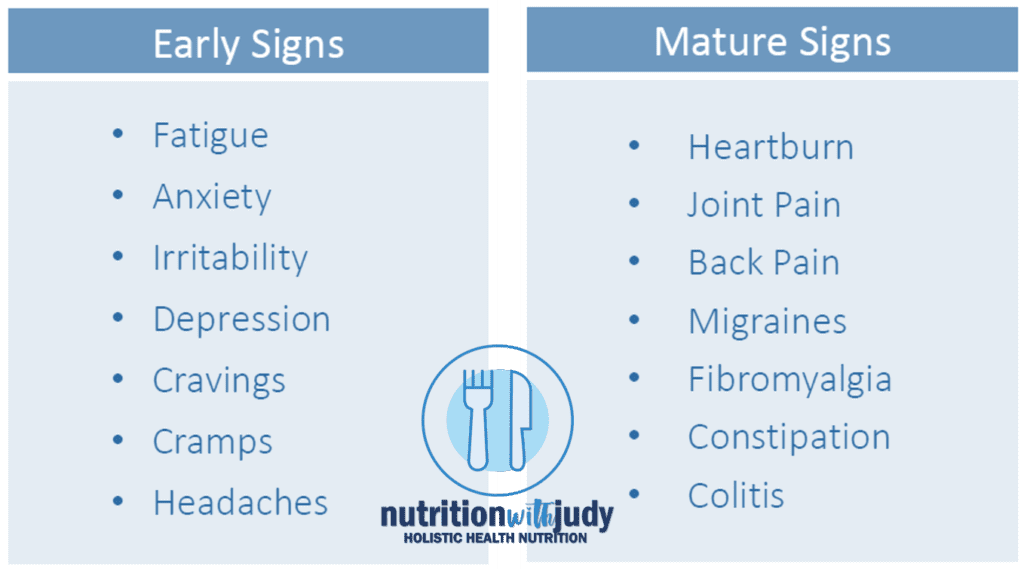

Recommended Water Intake
Do your research to find a good source of water. I don’t recommend drinking tap water. You can read my thoughts here. Research good filtration systems for both your drinking water and your shower.
Always listen to your body but the daily recommended water consumption is half your body weight in ounces. So if you weigh 150 lbs., you should drink about 75 ounces of water.
If you drink any diuretic drinks, such as coffee, caffeinated teas, herbal teas, soda, alcoholic beverages, and fruit juices, you should drink even more water.
Estimated Water Intake
- If you weigh 150 lbs., drink 75 ounces of water
- If you drink an 8‐ounce diuretic beverage, add 12‐16 ounces of water to your daily intake. Your total water intake becomes 87 to 91 ounces of water)
Make sure to get adequate electrolytes, which include sole water and unrefined sea salt.
If you struggle to balance your minerals, you may want to consider a hair tissue mineral test. I always say to heal the gut first but if you have and you still feel electrolyte imbalances, consider finding out your mineral status.
You can always start with proper hydration and start the morning with 1tsp to 1 tbsp of sole water and topical magnesium spray at night.
w️ith ♥ and hope for healing,


If you enjoyed this blog post, you may also enjoy these other Nutrition with Judy blog posts:
- Truth about Tap and Mineral Water
- Should You Limit Salt? Part 1
- Balancing Electrolytes & Sole Water Recipe. Part 2
- DIY Magnesium Spray
- What’s in Your Sparkling Waters – Natural Flavors
DISCLAIMER: The content is for educational purposes only. While I am a nutritional therapy practitioner, I am not providing medical advice. Whenever you start a new diet or protocol, always first consult with your trusted practitioner.



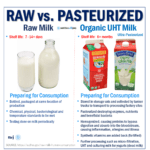
office water cooler Gold Coast
August 17, 2021 at 8:42 amThe sufficient water intake is one of the most important driving force behind your work performance. Water charges our brain cells and makes them regain focus and attention.